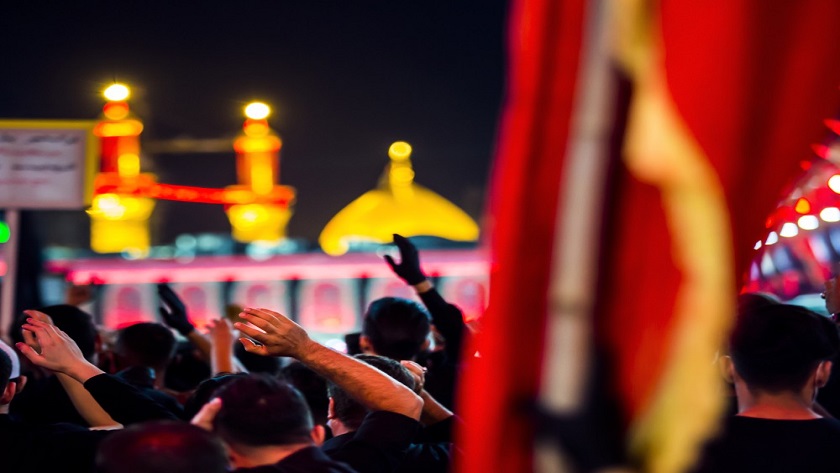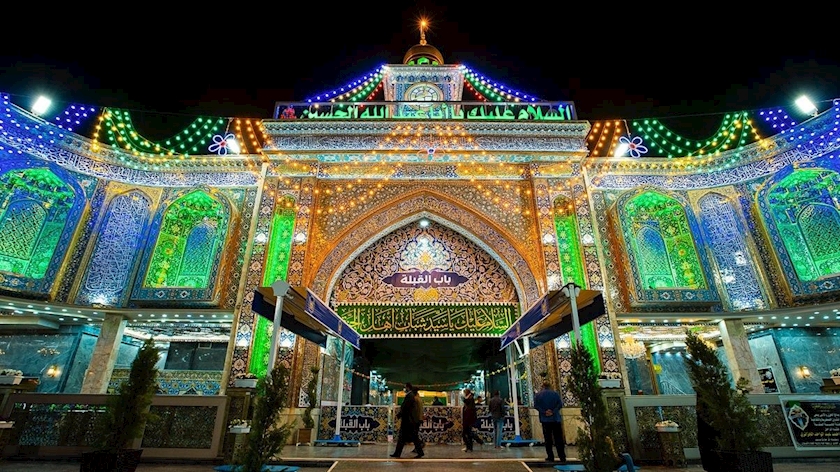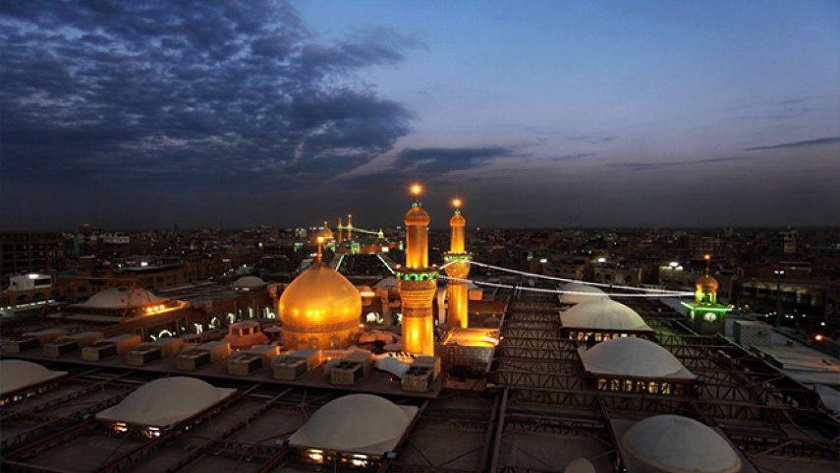Iran Press/ Iran news: A true reformer who was a benefactor of the nation and for the very sacred goal of saving the society from the corruption of Yazid, he did not give up on any effort and even sacrificed his life, wealth and family so that Islam, Islamic teachings and the pure teachings of Muhammad (PBUH) would survive and not be distorted.
This short article specifically looks at the character of Imam Hussain (AS) as a great reformer and benefactor and tries to introduce him as an imam who was a benefactor of the people and tried to reform the Ummah of the Messenger of God (PBUH) after the corruption of the government.

Reform is against corruption. Reformation is done in different ways and at different times. Sometimes reform is done in a government system; in such a way that when a government is corrupt or immoral, a person or a group of people seek to correct this situation. In fact, the goal of all the prophets was to reform political and governmental systems and institutions and, in general, to reform society's morals.
Related News: Black flag hoisted over dome of Imam Hussein's holy shrine
Reform in society can happen both at individual and social level, and each depends on the other. On the one hand, if each person corrects himself, the society is reformed and people can influence the society and reform it with the help of each other by observing individual and human ethics. On the other hand, if the social system is reformed, it will provide a suitable platform for individual growth and reform, and each member of the society will be inclined towards individual reform.
 Mourners observing ceremony in Karbal
Mourners observing ceremony in Karbal
With his uprising, Imam Hussein (AS) followed both ways of social and individual reform, Since they left their city for Kufa, they announced that they were moving with the intention of reforming the Ummah of the Messenger of God, Mohammad (PBUH). In this way, the movement of Imam Hussein (AS) was an uprising to reform society and the government.
Related news: Imam Reza's Holy shrine turns black in Muharram
At the very beginning of his movement, Imam Hussein (AS) announced that he would rise up with the intention of reforming the society (ummah) of the Messenger of God (PBUH) and that he was always a benefactor of the ummah. In fact, in a letter to his brother, Muhammad Hanafiyyah, specifies his benevolent purpose. He says: "My uprising is not for evil, oppression, sedition and for corruption, but my departure from Medina and Mecca and departure against the oppressive rule of Yazid was to reform the nation of my grandfather, the Messenger of God (PBUH)."

A very significant point that is evident in this letter by Imam Hussein (AS), Reforming the Ummah of God's Messenger is what Imam Hussain (AS) declares as the goal of his movement. But the question is, what was the case that needed to be reformed that forced the imam to stand up for it?
In fact, the need for reform in the Ummah of the Messenger of God (PBUH) was felt from the very beginning days after Mohmmad (PBUH) passed away. After this, Some of the Ansar and the emigrants gathered in the Saqifah, to choose the caliph after the Messenger of God (PBUH). During the lifetime of the Messenger of God (PBUH), they considered themselves to be his loyal companions and on the 18th of Dhul-Hijjah (the day of Ghadir Khumm), they pledged allegiance to Imam Ali (AS). But they did not pay attention to the order of Omniscient God, according to which he required the Prophet (PBUH) to call Imam Ali (AS) his successor in front of ten thousand people on the day of Ghadir Khumm.
Related news: 'Ghadir to Ashoura' event held in Imam Reza shrine
Indeed, the deviation of the Ummah of the Messenger of God (PBUH) happened on the same day that the path of the Caliphate in Islam was changed, And the caliphate, which was the right of Ali bin Abi Talib (AS), and the holy Prophet had announced it to everyone many times and on different occasions, such as Ghadir Khumm, was taken from him and handed over to other people.
When Imam Hussein (AS) saw that due to this deviation, the face of Islam is being distorted day by day he decided to stand against the corrupt Umayyad system. And he founded his movement on the basis of reforming the Ummah of the Messenger of God (PBUH).
Related news: Eid al-Ghadir; feast of union of believers and brotherhood among Muslims
Imam Hussein (AS) announced that he would start his movement with the aim of saving the nation from corruption as he intends to eliminate the deviations created by the government while reminding people of the blessings that Islam bestowed upon them. The Islamic society was so far away from the truth of Islam and the teachings of the Prophet (PBUH) that Imam Hussein (PBUH) raised against this situation to restore the prophetic religion which in the end led to the Karbala incident.
Related news: Mourning flag for Muharram month hoisted in Tehran
Prophets and Imams (PBUH) always sought reform out of benevolence and did not spare any effort to reform society and its individuals. In Quran God says to Mohammad, you are so intent on guiding the people that you are ready to sacrifice your life. It is clear that the Holy Prophet of Islam (PBUH) also tried hard to reform the people out of compassion and benevolence, and this fact is clearly evident from the reports that have reached us from the tradition of the Holy Prophet of Islam.

Undoubtedly, Imam Hussein (AS) as the grandson of the Prophet of Islam (PBUH) sacrifices his life, property and family so that Islam and Islamic teachings have not digressed, truth is separated from falsehood and does not get mixed up, and the distortion of pure teachings and teachings of Muhammad (PBUH) is confronted.
History has shown that sometimes some people who are at the head of corrupt people claim to be reformers in order to make their corruption justified. God states in verse 11 of Surah Al-Baqarah that when the hypocrites are asked, why do you seek corruption on earth and do destructive and seditious work? they reply, "We are only reformers."

Certainly, all corruptors consider themselves entitled to corruption and make baseless justifications for their deeds, to the extent that they hypocritically call themselves reformers and benefactors of the people. This is despite the fact that in Quranic and religious culture, reform takes place when corruption is fought and it is suppressed. In this way, the real reformer is the one who confronts corruption and sedition and tries to reform society.
Related News: Iran Mourns in Muhrram
The movement of Imam Hussain (AS) is a comprehensive one that has been honored for hundreds of years and many people are proud that their movement has been inspired by that of Imam Hussain (AS). Undoubtedly, what made Imam Hussain (AS) known to all human societies was his reformist and benevolent movement. He is considered one of the great reformers of history because of his uprising to against the corrupt government of his time. A great reformer who was a benefactor of the nation and did not give up any effort for the very sacred goal of reforming the society, even sacrificing his life, wealth and family so that Islam, Islamic teachings and the pure teachings of Muhammad (PBUH) would survive and not be distorted. 219
Read More:
Eid al-Ghadir; feast of union of believers and brotherhood among Muslims
Islamic Revolution has its roots in Ashura, Arbaeen: Minister
Ashkan Salehian

